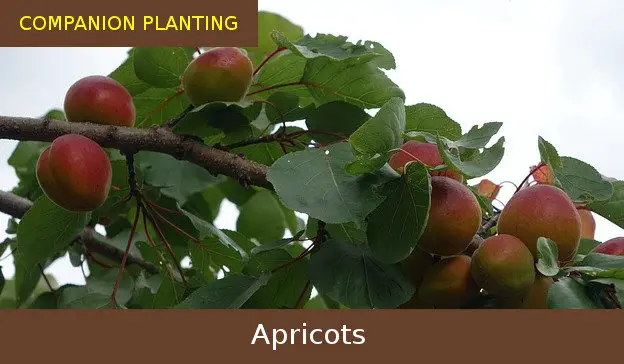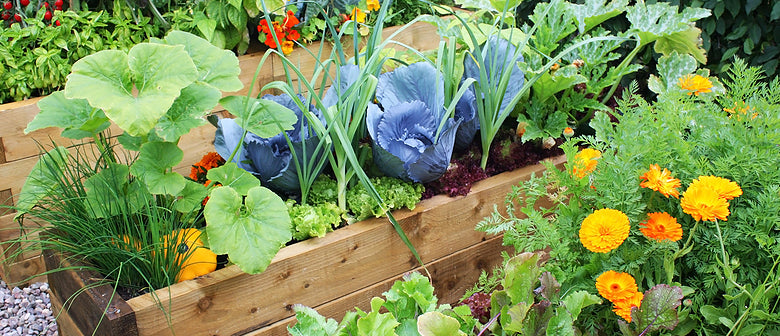The Ultimate Guide To Companion Planting Apricots
The Ultimate Guide to Companion Planting Apricots
Apricot trees are a delicious and versatile fruit that can be enjoyed fresh, dried, or cooked. They are also relatively easy to grow, making them a popular choice for home gardeners.
One way to improve the health and productivity of your apricot tree is to practice companion planting. Companion planting is the practice of planting certain plants together to benefit each other. Some plants can help to attract beneficial insects, repel pests, or improve the soil quality.
In this guide, we will discuss the best companion plants for apricot trees. We will also provide some tips on how to plant and care for your apricot tree.
Benefits of Companion Planting
There are many benefits to companion planting apricots. Some of the benefits include:
- Increased pollination: Some companion plants can help to attract pollinators, such as bees and butterflies. This can help to increase the pollination of your apricot tree, which will lead to more fruit.
- Reduced pest pressure: Some companion plants can help to repel pests, such as aphids, borers, and mites. This can help to protect your apricot tree from damage and disease.
- Improved soil quality: Some companion plants can help to improve the soil quality, which can benefit your apricot tree. For example, legumes fix nitrogen in the soil, which can provide a valuable nutrient for apricot trees.
Best Companion Plants for Apricots
There are many different plants that can be companion planted with apricot trees. Some of the best companion plants include:
- Herbs: Herbs are a great way to attract beneficial insects and repel pests. Some good herbs to plant near apricot trees include basil, chives, garlic, mint, and rosemary.
- Sunflowers: Sunflowers are tall plants that can provide shade for apricot trees. They can also help to attract pollinators.
- Strawberries: Strawberries can be planted under apricot trees. They will benefit from the shade of the tree, and the apricot tree will benefit from the nitrogen that the strawberries fix in the soil.
- Grape vines: Grape vines can be planted alongside apricot trees. They will both benefit from the support of each other.
- Asparagus: Asparagus is a good plant to plant near apricot trees because it will have finished cropping before the apricot tree is in full growth. This will help to prevent the asparagus from shading the apricot tree.
What Not to Plant Near Apricots
There are a few plants that should not be planted near apricot trees. These plants include:
- Peppers: Peppers can transmit a fungus that can be harmful to apricot trees.
- Tomatoes: Tomatoes can also transmit a fungus that can be harmful to apricot trees.
- Potatoes: Potatoes can attract the Colorado potato beetle, which can also be harmful to apricot trees.
- Eggplants: Eggplants can attract the same pests as tomatoes and potatoes.
Planting and Care
Apricot trees should be planted in full sun in well-drained soil. They should be watered regularly, especially during the first year after planting. Apricot trees should be fertilized in the spring with a balanced fertilizer.
Apricot trees are relatively pest- and disease-resistant. However, they can be susceptible to a few problems, such as aphids, borers, and leaf spot. If you do experience any problems, there are a number of organic pest and disease control methods that you can use.
Conclusion
Companion planting can be a great way to improve the health and productivity of your apricot tree. By planting the right companion plants, you can attract beneficial insects, repel pests, and improve the soil quality. This will help your apricot tree to thrive and produce delicious fruit for years to come.
Apricot trees are a delicious and beautiful addition to any garden. But did you know that there are certain plants that can help your apricot tree thrive? Companion planting is the practice of planting certain types of plants together to benefit each other.
Some of the best companion plants for apricot trees include:
- Basil: Basil is a natural insect repellent that can help to keep pests away from your apricot tree. It also attracts pollinators, which will help to ensure that your tree is well-fruited.
- Chives: Chives are another insect-repelling plant that can help to protect your apricot tree. They also add nitrogen to the soil, which can help to improve the health of your tree.
- Strawberries: Strawberries are a good companion plant for apricot trees because they have similar growing requirements. They also help to suppress weeds, which can help to keep your apricot tree healthy.
- Grape: Grapes are a good companion plant for apricot trees because they can help to provide shade in the summer. This can help to protect your apricot tree from heat stress.
If you're looking for more information about companion planting for apricot trees, I recommend visiting Gardenia Inspiration. This website has a wealth of information on the topic, including a list of specific plants that are good companions for apricot trees.
FAQ of apricot companion plants
Question 1: What are the best companion plants for apricot trees?
Answer: Apricot trees benefit from being planted near other fruit trees in the same family, such as plums, peaches, and nectarines. These trees help to attract pollinators and improve the overall health of the apricot tree. Other good companion plants for apricot trees include:
- Sunflowers: Sunflowers help to attract beneficial insects and deter pests.
- Basil: Basil helps to repel aphids and other pests.
- Onion: Onions help to repel nematodes, which can damage apricot roots.
- Garlic: Garlic helps to repel pests and diseases.
- Strawberry: Strawberries help to improve the drainage around the apricot tree.
Question 2: What are some of the benefits of companion planting with apricot trees?
Answer: There are many benefits to companion planting with apricot trees. Some of the most important benefits include:
- Attracting pollinators: Companion plants can help to attract pollinators, such as bees and butterflies, which are essential for apricot tree pollination.
- Improving soil health: Companion plants can help to improve soil health by adding nutrients, reducing soil erosion, and suppressing weeds.
- Deterring pests and diseases: Companion plants can help to deter pests and diseases by releasing chemicals that repel or confuse insects.
- Creating a more diverse ecosystem: Companion planting can help to create a more diverse ecosystem, which can benefit both the apricot tree and the surrounding environment.
Question 3: What are some of the most common pests and diseases that affect apricot trees?
Answer: The most common pests and diseases that affect apricot trees include:
- Apricot aphid: Apricot aphids are small, green insects that suck the sap from apricot leaves. They can cause leaf curling and yellowing, and can eventually weaken the tree.
- Apricot leaf spot: Apricot leaf spot is a fungal disease that causes brown spots to appear on apricot leaves. The disease can spread to the fruit, causing it to rot.
- Apricot scab: Apricot scab is another fungal disease that causes brown spots to appear on apricot leaves. The disease can also spread to the fruit, causing it to rot.
- Apricot brown rot: Apricot brown rot is a fungal disease that causes the fruit to rot. The disease can spread quickly, and can ruin an entire crop.
Question 4: How can I protect my apricot tree from pests and diseases?
Answer: There are a number of ways to protect your apricot tree from pests and diseases. Some of the most effective methods include:
- Planting resistant varieties: There are a number of apricot varieties that are resistant to pests and diseases. Planting one of these varieties can help to reduce your risk of problems.
- Prune regularly: Pruning can help to improve air circulation around the tree, which can help to prevent the spread of pests and diseases.
- Inspect the tree regularly: Inspecting the tree regularly can help you to identify pests and diseases early, when they are easier to control.
- Use organic pesticides: If you do need to use pesticides, use organic pesticides that are safe for the environment.
Question 5: What are the best conditions for growing apricot trees?
Answer: Apricot trees thrive in full sun and well-drained soil. The soil should be slightly acidic to neutral, with a pH of 6.0 to 7.0. Apricot trees need regular watering, especially during the first few years after planting. They are also susceptible to frost, so they should be planted in an area that is protected from cold winter weather.
Image of apricot companion plants
5 different images of "apricot companion plants" from Pinterest:
- Sunflowers are a great companion plant for apricot trees because they attract pollinators, such as bees and butterflies. Sunflowers also help to suppress weeds and improve the soil.

- Basil is another good companion plant for apricot trees. Basil helps to repel pests, such as aphids and whiteflies. It also helps to improve the flavor of the apricots.

- Onion and garlic are also effective at repelling pests. They can help to protect your apricot tree from pests such as Japanese beetles and borers.


- Wormwood is a less common companion plant for apricot trees, but it can be very effective at repelling pests. Wormwood helps to protect your apricot tree from pests such as moths and nematodes.
- Marigolds are a beautiful and beneficial companion plant for apricot trees. Marigolds help to attract pollinators and suppress weeds. They also help to improve the soil.

Post a Comment for "The Ultimate Guide To Companion Planting Apricots"